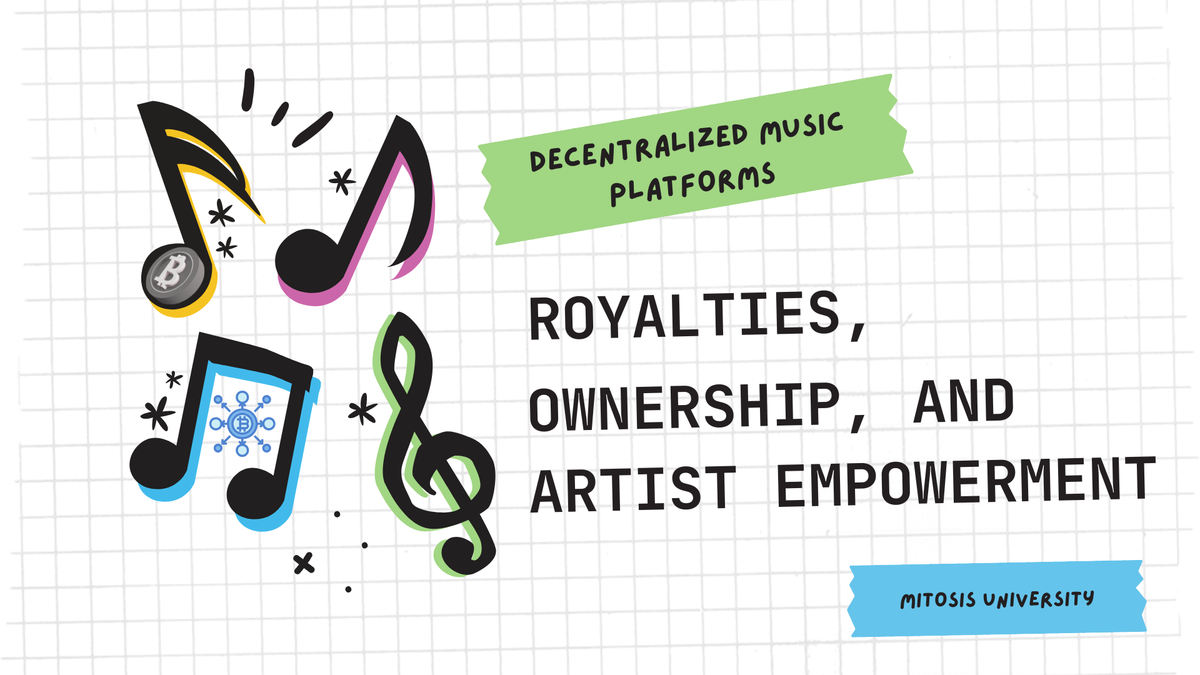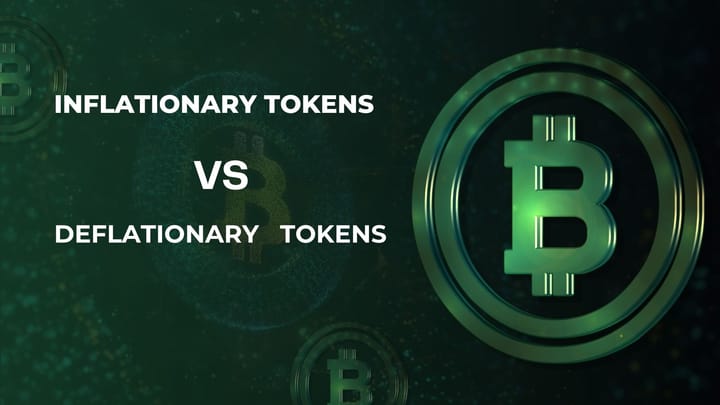Decentralized Music Platforms: Royalties, Ownership, and Artist Empowerment

Introduction
The music industry has long grappled with issues of fair compensation, ownership disputes, and artist disempowerment, particularly in the digital era dominated by streaming platforms. Decentralized music platforms, powered by blockchain technology, have emerged as a potential solution, aiming to redistribute power and revenue more equitably.
The concept of decentralization in music leverages blockchain, a distributed ledger technology, to create peer-to-peer networks where artists can interact directly with fans, manage their intellectual property, and receive fair compensation without intermediaries.
Understanding Decentralized Music Platforms
Decentralized music platforms are digital ecosystems that operate on blockchain, enabling artists to distribute, manage, and monetize their music without relying on centralized entities like record labels or streaming services. These platforms use smart contracts—self-executing agreements with predefined rules—to automate processes such as royalty distribution, ensuring transparency and efficiency.
Key examples include:
- Audius, a decentralized streaming platform where artists upload and share music directly with fans, maintaining control over content and earnings. It features direct artist-fan streaming, secure music data tracking, instant payments, fan engagement, and curation.
- Ujo Music, which allows artists to sell music directly to fans, with automated royalty payments and a decentralized marketplace, also offering artist collaboration tools.
- OPUS, a decentralized music sharing platform where fans can create and share playlists, with blockchain ensuring fair compensation, claiming artists can earn 90%+ revenue compared to ~20% on other platforms.
These platforms aim to bypass traditional gatekeepers, offering artists full ownership and control, as highlighted in recent analyses from 2024, such as the ScoreDetect guide on blockchain for music royalties.
Revolutionizing Royalties with Blockchain
The traditional royalty system is fraught with issues, including complex calculations, a lack of transparency, payment delays, and risks of fraud and errors. Research suggests artists receive only about 12% of the global music revenue, estimated at $50 billion in 2020, with streaming services like Spotify retaining 80%, leaving 20% for rights holders Protokol insight. This disparity underscores the need for reform.
Blockchain addresses these challenges by providing a transparent, tamper-proof record of music consumption and royalty payments on a public, decentralized ledger. Smart contracts automate payments directly to artists when music is played or streamed, ensuring instant and accurate compensation. For instance:
- eMusic claims artists retain up to 90% of sales revenue, a significant improvement over traditional models, as noted in Flourish$Prosper’s distribution analysis.
- songs.tools mentions distributing music to all streaming platforms (Spotify, Meta, TikTok, Apple Music) and tokenizing royalties, allowing artists to get funded, with monthly payments to stakeholders.
The benefits, as outlined in the ScoreDetect guide, include transparency, efficiency, direct connection, and security, detailed in the following table:

However, issues with traditional systems, such as complex calculations, lack of transparency, payment delays up to 2 years, and fraud risks, are significant barriers, as noted in the same guide.
Ownership and Artist Control
Ownership in the music industry has traditionally been a contentious issue, with artists often losing control to labels and publishers. Decentralized platforms restore this control by leveraging blockchain to provide immutable, traceable records of rights ownership.
- Blockchain for Ownership: Platforms like Mycelia offer a decentralized database for registering works, creating a permanent record, as seen with Imogen Heap’s Creative Passport certifying artist identities and works Flourish$Prosper. Each song has a unique ID indicating ownership, enhancing transparency and tracking usage.
- Tokenization and NFTs: Non-fungible tokens (NFTs) represent digital ownership, allowing fans to invest in and share royalties. For example, Kings of Leon’s NFT album release allowed fans to own fractions of tracks, as reported in Rolling Stone. The ScoreDetect guide details benefits like new income streams, fractional ownership, and fan engagement, summarized below:

Platforms like Opulous, combine music royalties with AI, allowing fans to invest while artists earn, illustrating practical applications. recordnexus notes Web3 enables fractional ownership, reshaping traditional models.
Artist Empowerment and Direct Fan Engagement
Decentralized platforms empower artists by flattening the industry structure, removing intermediaries, and enabling direct management of rights. This empowerment is evident in several ways:
- Direct Fan Interaction: Platforms like Sound and Async Art facilitate Web3-based NFT platforms for interactive artist-fan relationships, offering personalized experiences, as noted in Built In’s blockchain music examples.
- New Business Models: Artists can set pricing and control intellectual property rights, as seen with Björk selling her 2017 album Utopia via cryptocurrencies, rewarding fans with tokens Flourish$Prosper.
- Cost Reduction: Blockchain reduces distribution and promotion costs, allowing independent artists to reach global audiences, as highlighted in CoinGeek’s guide for artists.
Challenges
Despite the promise, decentralized music platforms face several challenges:
- Resistance to Change: Unfamiliarity and fear of disruption require education, as noted in Flourish$Prosper’s royalties analysis. Case studies, workshops, and seminars are suggested to bridge this gap.
- Legal and Regulatory Issues: The decentralized nature raises concerns about security, privacy, and intellectual property rights, with immature regulatory frameworks causing hesitation, as detailed in the same source.
- Technical Limitations: Scalability is a significant issue, with current platforms processing limited transactions per second, far less than needed for global royalty networks, requiring high infrastructure investment and skilled developers, as noted in Flourish$Prosper.
The future outlook is optimistic, with decentralization and transparency enhancing compensation via smart contracts for automated, direct, and fraud-reduced transactions. Cryptocurrencies could eliminate banking fees, simplifying international payments, as seen in CoinGeek’s guide. Empowering independent artists with control over intellectual property, enabling microtransactions, and ensuring secure rights via blockchain’s immutable nature are key trends, supported by recent collaborations like Kima Network and Music Protocol, tokenizing royalties for wider investor access.
Conclusion
Decentralized music platforms, leveraging blockchain, are revolutionizing the music industry by addressing royalties, ownership, and artist empowerment. They offer transparency, fair compensation, and direct fan engagement, though challenges like scalability and regulation persist.
Key Citations
- Blockchain for Music Royalties 2024 Guide ScoreDetect Blog
- Blockchain in Music 17 Examples Built In
- Decentralized music sharing platform OPUS
- Unlocking the Potential of Blockchain Music Royalties Protokol
- Music’s Potential Cryptocurrency Boom Field Guide Rolling Stone
- Impact of Blockchain in Music Guide for Artists CoinGeek
- Blockchain in Music Industry Game Changer Distribution 2024 Flourish$Prosper
- Tokenization of music rights Gate.io
- Blockchain and Royalties Ensuring Fair Compensation Artists Flourish$Prosper
- Audius decentralized music streaming platform
MITOSIS official links:
GLOSSARY
Mitosis University
WEBSITE
X (Formerly Twitter)
DISCORD
DOCS



Comments ()